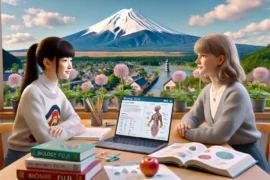Science Quiz Bee - Grade 3
Understanding Science: Exploring the Wonders of Nature for Grade 3
Introduction
Science is all about exploring the world around us. From the tiniest plants to the vastness of space, science helps us understand how things work and why they are the way they are. This article dives into some of the key concepts covered in the quiz, offering explanations and examples that will help deepen your understanding of these amazing topics.
The Planets in Our Solar System
The solar system is home to many planets, but one of the most famous is Jupiter, the largest planet. Known for its massive size and Great Red Spot, Jupiter is a gas giant that dwarfs all the other planets.
Example
Imagine Jupiter as a giant balloon, so big that you could fit all the other planets inside it and still have room to spare.
Photosynthesis: How Plants Make Food
Plants are like little factories, using sunlight to create their own food through a process called photosynthesis. This important process mainly takes place in the leaves of plants, where chlorophyll absorbs sunlight.
Example
Leaves are like the solar panels of a plant, capturing sunlight and using it to make food that the plant needs to grow.
The Importance of the Sun
The Sun is the ultimate source of energy for all life on Earth. It drives the process of photosynthesis, warms our planet, and powers the weather systems that bring rain and wind.
Example
Without the Sun, there would be no plants, no animals, and no humans, as every living thing relies on the Sun’s energy in one way or another.
The Water Cycle: Evaporation
Water is constantly moving through the environment in a cycle. One part of this cycle is evaporation, where water turns into vapor and rises into the sky to form clouds.
Example
When you leave a glass of water out on a hot day, the water slowly disappears. That’s because it evaporates into the air as water vapor.
Rocks and the Earth
Rocks are the building blocks of the Earth’s crust. Igneous rocks, in particular, form when magma or lava cools and hardens. These rocks can be found all around us, from the granite countertops in our kitchens to the basalt stones on the seashore.
Example
Next time you see a stone, think about how it might have been formed deep underground from molten rock before it was pushed to the surface.
Conclusion
Science is full of fascinating facts and exciting discoveries. By exploring the topics covered in this quiz, you can learn more about the world around you and how everything is connected. Whether you’re curious about the stars in the sky or the plants in your garden, science provides the tools to help you understand it all. Keep asking questions, keep exploring, and never stop learning about the wonders of nature.








Comments are closed.